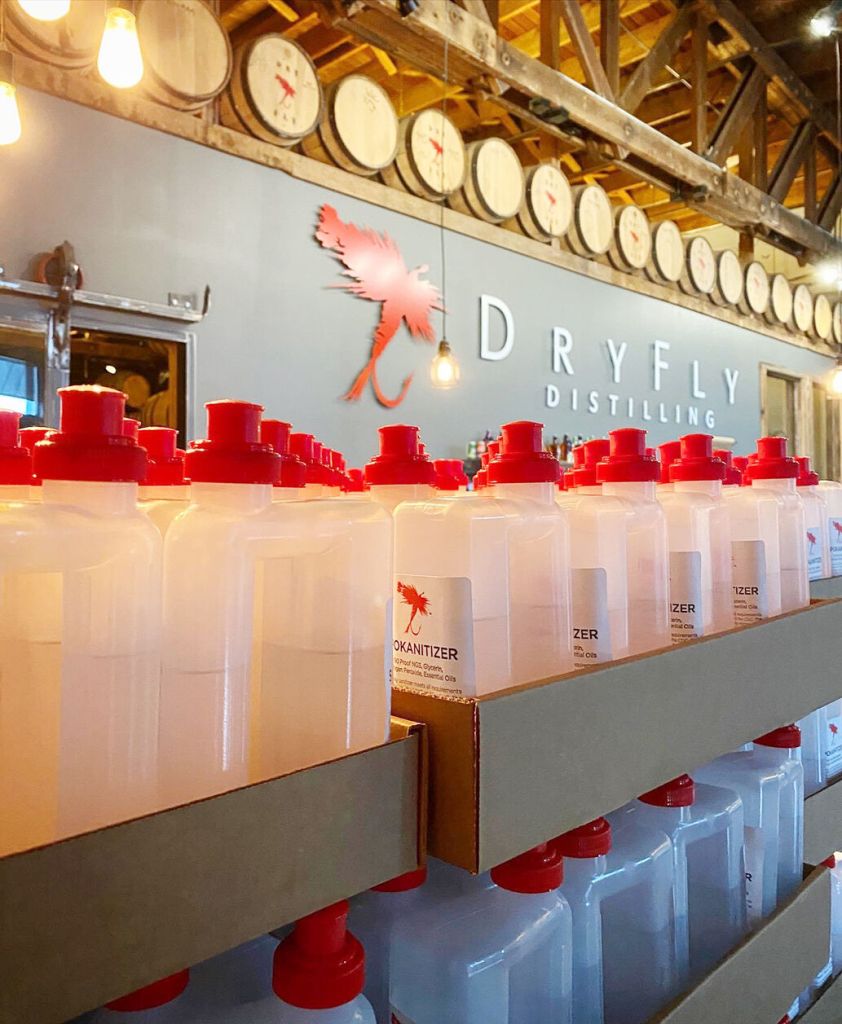Feds backpedal on $14K fee for distillers that made hand sanitizer
Published 5:15 am Thursday, January 7, 2021

- Bottles of hand sanitizer made by Dry Fly Distilling in Spokane. The FDA announced Dec. 29 it would impose $14,000 in fees for distilleries that made hand sanitizer amid the coronavirus pandemic. The fees were later rescinded.
WASHINGTON — No good deed goes unpunished.
That is how dozens of Northwest distillers felt after rushing to make hand sanitizer in the early days of the coronavirus pandemic, only to be slapped with unexpected fees by the U.S. Food and Drug Administration for their efforts.
The FDA announced Dec. 29 it would charge distilleries across the country $14,060 under a newly established fee program for “monograph drug facilities” producing over-the-counter drugs, including hand sanitizer.
Two days later, the Department of Health and Human Services, which oversees the FDA, decided to withdraw fees for distilleries after receiving blowback from industry representatives and lawmakers. Payments for fiscal year 2021 had been due Feb. 11.
“We are incredibly grateful to HHS for opening a dialogue with us, and look forward to working more collaboratively together in 2021 with FDA to ensure our members are treated fairly for the challenges they face to support their hometowns via hand sanitizer production in the wake of COVID-19,” said Becky Harris, president of the American Craft Spirits Association.
According to the Distilled Spirits Council of the United States, 67 craft distilleries in Oregon, Washington and Idaho have produced hand sanitizer in response to the pandemic.
In Spokane, demand for hand sanitizer was so great that hundreds of cars lined up outside Dry Fly Distilling at a time when store shelves were virtually empty.
Terry Nichols, co-owner and vice president of sales for Dry Fly Distilling, said the idea to make hand sanitizer was spearheaded in March by head distiller Patrick Donovan. The distillery switched one of its vodka column stills over to making 190-proof ethanol, which was mixed with hydrogen peroxide, glycerin and distilled water — a formulation recommended by the World Health Organization.
Nichols estimates they made about 32,000 gallons of hand sanitizer in total. The first 5,000 gallons were donated to first responders and social service providers, including hospitals, police and nursing homes.
Dry Fly Distilling also organized 10 community distribution events, held over a series of Saturdays, which proved popular. Police directed traffic to where volunteers stood ready on both sides of the street, handing out 4- and 8-ounce bottles.
Nichols said they had as many as 3,000 cars drive through during the events.
“I never thought I’d see so many people so thankful for hand sanitizer,” Nichols said. “People were scared. There was a need, and they couldn’t find it on the store shelves. They were just grateful.”
Nichols described the FDA fees as a slap in the face for distillers who were just trying to do the right thing in a time of crisis.
John Ufford, CEO of Rose City Distilling in southwest Portland, said it was actually the U.S. Alcohol and Tobacco Tax and Trade Bureau that put out the initial call for distillers to make hand sanitizer, and even provided the recipe.
Rose City Distilling continues to make hand sanitizer as part of its operations, albeit at a smaller scale.
Had the FDA fees gone forward, Ufford said they were prepared to fight in court, if necessary.
“My initial reaction was that we are not paying a dime,” Ufford said. “We did what we were asked to do.”
Thomas Mooney, founder and CEO of Westward Whiskey in Portland, said that while his distillery ultimately decided not to make hand sanitizer, the fees would have been a serious financial blow for small producers.
“What I can definitely tell you is that these fees are a gut punch for a community of small producers who lost most of our business this year and still found ways to help our communities by providing hand sanitizer when nobody else would,” Mooney said.





